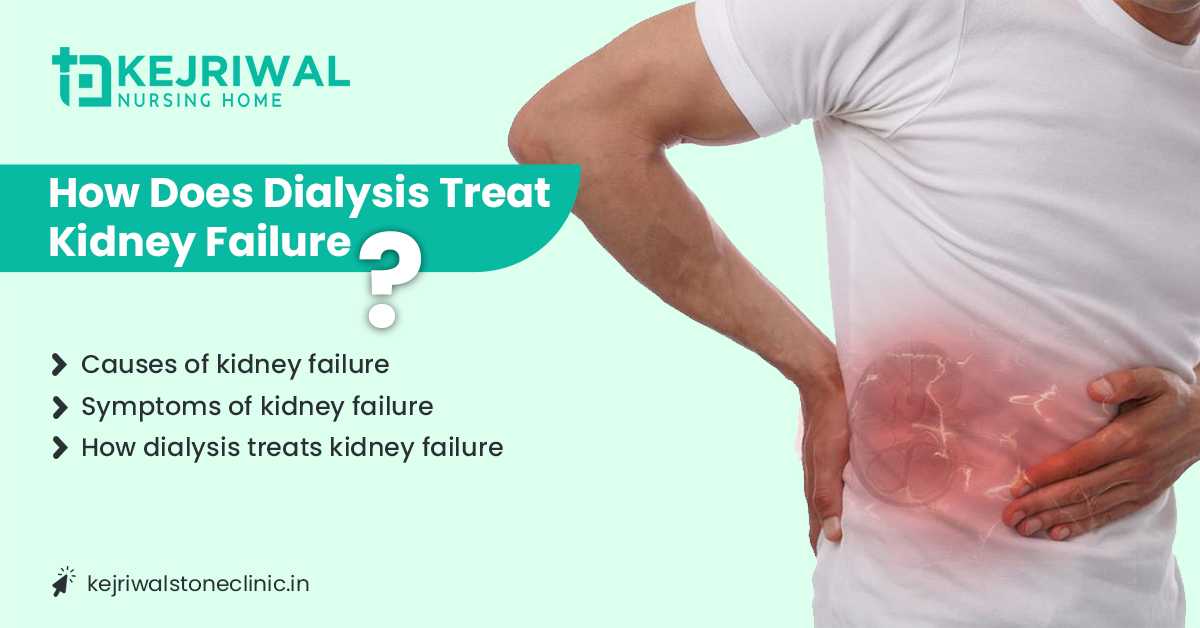We all know the major role of kidneys is to eliminate waste products, extra fluids, and toxins out of our blood through the urine. The kidneys also make a hormone that encourages red blood cell production. The problem emerges from the kidneys' improper function, the building of excess fluids and waste materials inside the body leads to several categories of kidney diseases. if the problem remains undetected it can cause kidney failure. For any kind of kidney treatment, contact Kejriwal Nursing Home, considered the best dialysis center in Siliguri.
Table of contents:
- Causes of kidney failure
- Symptoms of kidney failure
- How dialysis treats kidney failure
Causes of kidney failure
Kidney failure, also known as endstage renal disease, is not an overnight complication, multiple reasons work behind it.
- Slow blood flow to the kidneys
- Inappropriate kidney function ( when waste and toxins become unable to leave your body)
- High blood pressure
- Diabetes
- Heart attack
- Urinary tract disease
- Drug abuse/alcohol consumption/smoking
Symptoms of kidney failure
Certain major signs of kidney failure you should not overlook, are-
- Muscle cramps
- Swelling in the ankle and feet area
- Less urine output
- Frequent urination
- Shortness of breath
- Pain in your chest
- Seizures
How dialysis treats kidney failure
When the kidneys become impotent to remove all these toxins from our blood naturally, urologists go for dialysis. It’s a medical procedure that uses a machine for clearing out solute, extra water, toxins. This therapy can be of both inpatient and outpatient.
The two main types of dialysis include:
- Hemodialysis
- Peritoneal Dialysis
Hemodialysis:
Hemodialysis refers to a urological procedure where a dialyzer, called an artificial kidney and a dialysis machine are used for cleaning your blood. It’s a minor surgery where two needles are placed in your arm and each of them is connected to a plastic tube that is attached to a dialyzer. The impure blood passes through the plastic tube to the dialyzer and then the purified blood is supplied back to your body through another tube.
The process takes about 3 to 4 hrs each time, you need to visit the hospital or dialysis center 3 times a week.
If your problem is identified at the right time, hemodialysis can be fruitful for you. Visit a urologist for any urinary discomfort.
Peritoneal dialysis:
This practice is wholly different from hemodialysis, here in peritoneal dialysis the blood is purified inside your body. During the process, the dialysate passes through a catheter to your abdomen. The peritoneum that is the lining of the abdomen, works as a filter, thus removing toxins out of your blood.
Confirm your appointment with top urologists at Kejriwal Nursing Home, the most successful dialysis center in Siliguri city.




